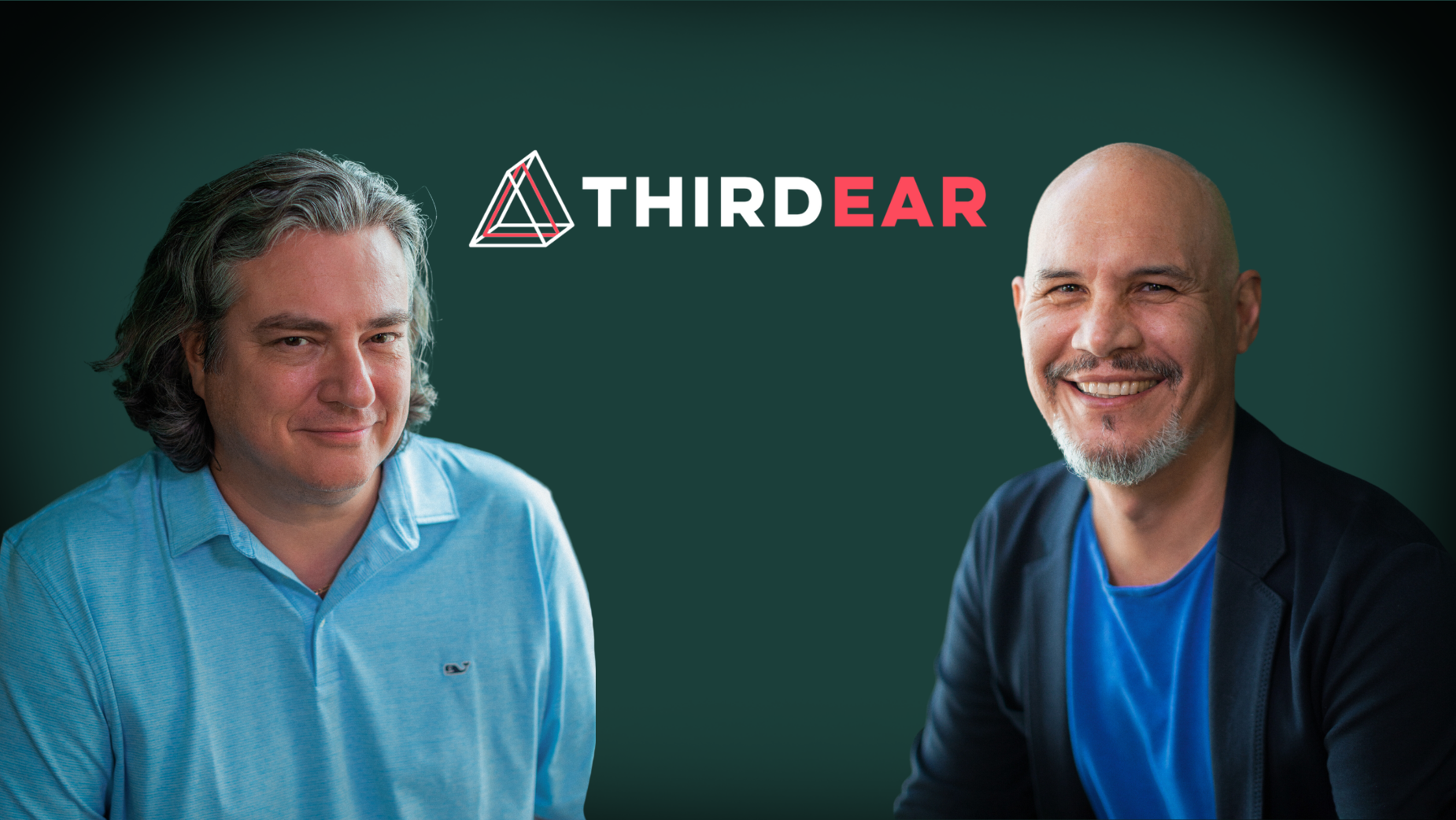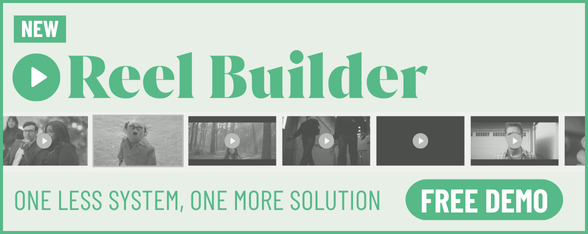
Meet the Agency that Wants to Know the Real You

Ed Castillo and Serge Flores are chief strategy officer and chief creative officer, respectively, of THIRD EAR. THIRD EAR dubs itself as 'an identities-led agency for today's America'.
The agency’s ‘identity-led’ positioning exists as a pointed approach to the more commonly used term of multicultural marketing. But, believe Ed and Serge, the issue with culturally-framed discourse is a lack of regard for a more nuanced ‘sense of self’. “A focus on identity therefore appreciates ‘where you are from,’” says Ed, “but it ultimately makes inferences about ‘where you actually are – right now, as a consumer considering the product or service we are trying to sell’.”
“Multicultural positioning is still very valid,” adds Serge. “But it can also create a box — or label, like I mentioned earlier. When you use an identities-led approach it can help dig deeper, and look beyond ethnicity, and culture — while still including them, since they often play a big role in people’s identities.”
Both Ed and Serge originally come from ‘traditional’ agency backgrounds. Ed has spent time as the global CSO at Arnold Worldwide and chief strategy officer at TBWA\Chiat\Day New York, while Serge has held creative roles in Australia and the US at places such as Clemenger BBDO and Saatchi & Saatchi Wellness. Most recently prior to THIRD EAR, his path crossed with Ed while he was a creative director at both Arnold and Chiat Day.
Keen to know how they approach their current work and how their backgrounds - both personal and career - inform it, and for a veritable deep dive on the inner workings and beliefs of THIRD EAR, LBB's Addison Capper chatted with Ed and Serge.
LBB> To start, give me the lowdown on your 'identities-led' positioning. How would you define it?
Ed> As a ‘multicultural’ agency we are sensitive to cultural norms, typically driven by ethnicity, socioeconomics, and other demographic variables. However, what’s often overlooked in cultural discourse is a more nuanced ‘sense of self’; why do I do what I do and what is guiding my behaviours ‘from the inside’ as it were (consumer behaviours, specifically)?
While it starts with demography, it becomes psychology very quickly; we do what we do largely on account of how we see ourselves.
A focus on identity therefore appreciates ‘where you are from,’ but it ultimately makes inferences about ‘where you actually are – right now, as a consumer considering the product or service we are trying to sell’.
Serge> It’s a simple, yet powerful idea. How people see themselves — versus the labels we put on them — is an impactful way to connect with audiences. Identity is a choice. When we leverage that notion, we focus on making sure people see themselves in the work. Beyond the surface level of ‘I look like that’, ‘I like that music’, or ‘that’s my language’; and into more meaningful identifiers, ‘I feel that way’, ‘I have similar values’, or ‘I face those challenges’.
LBB> Do you see a difference from a 'multicultural' positioning? How so?
Ed> Yes. Multicultural positionings typically apply inferences made ‘from the outside:’ How much money do you have? Where do you live? What was the language spoken in your childhood home?
Identity positionings apply inferences – sometimes even deductions (!) – made ‘from the inside:’ What does it feel like to be who you are – at your core, as it relates to this purchase?
Serge> Yes. Multicultural positioning is still very valid. But it can also create a box — or label, like I mentioned earlier. When you use an identities-led approach it can help dig deeper, and look beyond ethnicity, and culture — while still including them, since they often play a big role in people’s identities.
LBB> A difference between identity and culture is that identity is something you really nurture yourself, whereas culture is more something that we are born with. What are your thoughts on that and how it feeds into your way of thinking?
Ed> We respect – and are sensitive to – the effects of demographics. However, we focus on ‘what you feel about yourself’ over ‘what box you fit into’ because one’s sense of self determines, to a large degree, how one acts as a consumer.
Serge> Agree. Identity is self-defined, and nurtured, as you say. Culture you can be born into, but it’s also something you can absorb and adopt.
I was born into Uruguayan culture, which still influences my identity. I’m unbearable during a Uruguayan ‘fútbol’ match. But along the way I adopted Australian, American, New York and Austin culture.
Defining an identity, and how it intersects and interacts with the brand, pushes us to not only put ourselves in the audience’s shoes, but to also look through their eyes and be cognizant of both how they see themselves and how they see the world.
LBB> You mentioned to me once that this way of working pushes you to relinquish control and 'embrace ignorance'. Can you expand on what you mean by that, and how it influences the kind of work you do?
Ed> If anyone tells you that they are an ‘expert’ about a demographic, they are typically referring to a demographic of one… themselves. Our posture is anthropological; we are always learning about a group, ‘from the inside’ to the extent possible. Our ignorance is our strength! We believe if we make assumptions, we live with stereotypes.
Serge> On the ‘embrace ignorance’ front, it means leaving preconceptions behind and having the appetite to learn about the people you’re talking to. We all have biases, we all have notions about who people are — but, if you push past them you can understand how people see themselves, rather than assume you ‘get them.’
Relinquishing control, loosening your grip on the steering wheel can translate to inviting the right voices and perspectives to shape the work. You can still orchestrate and lead, but if you make more space, it can create opportunities to do work that is more genuine.
It's also a generational phenomenon — the younger generations are more collaborative and collective-driven. From a maker perspective, it means letting go and trusting the collective. From an audience perspective, it means the younger generations have a much more developed BS radar and can smell when the work is not genuine.
LBB> How are you finding communicating the positioning to current and potential new clients? How is it impacting your new business strategy?
Ed> To most it is a refreshing turn to cultural rigour, to others it is a rejection of simple stereotypes.
Serge> We’ve honed both the approach and how we share it with people. We’re super observant when we share our way of doing things. When do people lean back? When do they lean in? Eyebrows raised are better than eyebrows furrowed any day of the week.
We’re getting more eyebrows raised these days — people not only get it but see the value in it.
Operationalising and integrating our approach beyond our organisation is our next goal.
LBB> How has it, if at all, influenced your hiring strategy and the kind of people that you feel excel at THIRD EAR?
Ed> It’s played a significant role in who we pursue and who we choose. Cultural curiosity and an aptitude for searching – instead of assuming – is what we seek in new employees.
Serge> A lot. On two fronts.
First, you can get a read if this approach is something people can be passionate about. That can go a long way in predicting how successful they will be as part of the team, and how strong an advocate they can become.
Secondly, it encourages us to hire a diversity of identities — life experiences, trajectories, culture.
LBB> How do you deal with an occasion where perhaps you aren't so well versed in a certain identity? How important is outside counsel?
Ed> Strictly speaking, we are all only well-versed in our own identities.
We are always learning when it comes to the identities of others, and certainly when it comes to the ‘identity frame’ or ‘statement of identity’ for use in comms.
The critical outside counsel is always the people we are communicating with; primary qualitative research is therefore at the centre of our approach. Always.
Serge> Very. Back to embracing ignorance — if you accept you must learn and shift your viewpoint, it can open your mind to thinking differently. We see two things happen more and more often. An ‘official’ outreach for outside counsel — collaborators, freelance talent, etc. And an ‘organic’ reaching out to people’s networks — ‘I talked to my friend’s aunt’.
They both show a willingness to expand our understanding.
LBB> Is there a piece of work that you've done recently that's a good representation of 'identity' in practice?
Serge> The Red Stripe work comes to mind. To relaunch the brand and connect with the Afro-Caribbean audience in the US, we could’ve stopped at ‘Jamaican’. But by unlocking the notion of tallawah — a uniquely Jamaican expression of swagger and freedom of expression — we made the work not only more genuine but also more broadly resonant by defining a richer, more nuanced identity.
LBB> Since you both started at THIRD EAR, how do you feel conversations with clients have shifted and evolved around more identity focused advertising? What is fuelling that evolution?
Ed> A focus on Identities breathes new life into the interpretation of demography. Data will always be critical to marketing focus, but ‘what does that data actually mean?’ When we hold-hands with clients and commit to finding differences that make an actual, current difference in the behaviours of our audience (viz., ‘Hispanics are all about family’ is often NOT one of those), we have much more interesting conversations with our clients.
Serge> Demographics are certainly fuelling evolution. Data doesn’t lie. Pair that irrevocable truth with the recognition that people want to define who they are and how they are seen, and you start to see clients’ desire to embrace an identities-led approach.
Of course, we acknowledge we don’t live in a bubble. The identity conversation is part of global culture. What we’ve done is see the value for us and our clients and create a process that can be operationalised. The theory most people agree has value. The practice is where people see the potential impact.
LBB> How does both of your 'traditional' agency backgrounds feed into the work you do at THIRD EAR?
Ed> From ‘the outside’, I’ve always sought an understanding how self-image drives consumer behaviours, so that focus is welcome (and consistent with my previous experiences).
From ‘the inside,’ I’ve learned from, and can apply my experiences as an Irish-Mexican-American who grew up in a Mexican neighbourhood but was bussed to ‘White’ schools across town - a clash of identities that is increasingly becoming the norm for American consumers.
Serge> I am grateful for the experiences I had. They taught me the importance of rigour, scale, the ability to coalesce different people behind one idea, and, yes, a generous sprinkling of tallawah.
LBB> Any parting thoughts?
Ed> Intellectual curiosity about why consumers (people) do what they do has been on the decline for decades in our industry. Our approach is built to resist this adoption of black-box marketing.














